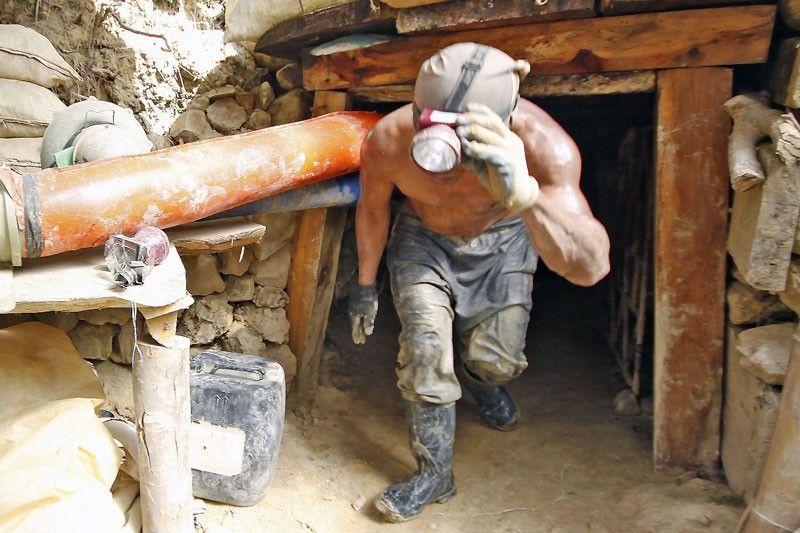Critical minerals are key to the green movement

Given the effects of climate change that are already being felt around the globe especially among the most vulnerable countries like the Philippines, there is now greater urgency in finding fast and high- impact solutions that would at least slow down, if not reverse, global warming.
Among these solutions is the shift to renewable sources of energy, away from the traditional processes like burning of fossil fuels. Green technologies, and the industries related to such, are gaining ground as the world wakes up to the stark truth that something must be done about climate change not soon, not in the future, but now.
The World Bank sees a huge demand for metals and minerals for this purpose. The international lender also said that a low-carbon future is essentially a mineral intensive future.
Countries that are rich in these minerals stand to gain substantially from these resources: taxes and royalties, infrastructure development, and the long-term development of host communities. Of course, encompassing all of these are the gains to be made in the fight against climate change.
The Philippines has the potential to become a major player in this drive toward green energy, being rich in metallic minerals like nickel, copper, and cobalt, among others. Because of their properties, these are minerals that are indispensable in building technologies designed for clean energy, specifically solar, wind, and geothermal technology and for all forms of emission free, electric powered transportation, that the whole spectrum of society is envisioned to transition.
However, despite the Philippines’ rich reserve of minerals that are essential to green technologies, the potentials cannot be realized at present because of the number of large scale operating mines for mineral extraction and processing capacity. Currently, the country operates only two nickel processing plants, underscoring the urgent need for strategic actions to bolster this capacity.
Bureaucratic barriers and efficiencies worsen the situation, because those willing to invest in the Philippines and ready to put up the billions of US dollars in capital required are met with bureaucratic roadblocks and policy uncertainty.
This is a significant missed opportunity that could instead yield the benefits for mineral-rich communities and the Philippine economy in general. This will also make the country a key player in the global renewable energy market.
How, then, could these limitations be addressed?
The key is to attract both foreign and local investments to first develop our capacity to harness the huge critical mineral reserves we have and create an environment where the development downstream processing industries becomes viable.
**
The Stratbase Institute and the Department of Environment and Natural Resources recently co-organized a mining conference that provided a platform for the discussion of the challenges and consensus on concrete actions and doable strategies to revitalize and optimize the potential of the mining sector.
Entitled “Revitalizing the Philippine Mining Industry: a Pillar for Inclusive and Resilient Economic Growth and Development,” the forum held May 10 brought together representatives of the government, the private sector, civil society, and members of the diplomatic community in a meaningful conversation about unlocking the Philippines’ potential in the use of minerals for green purposes.
The result was a vibrant and productive exchange of views as well as the realization of a clearer pathway to address regulatory barriers and move forward.
The conference discussions underlined the importance of creating a stable and conducive policy environment that would encourage investments and allow the mining industry to expand and deploy the latest technologies for mineral extraction while operating in strict compliance to environmental regulations.
This was met by enthusiasm and interest from various stakeholders.
National Economic and Development Authority (NEDA) Secretary Arsenio Balisacan said that "with abundant reserves of minerals vital to producing green technologies such as solar photovoltaic (PV) cells, wind turbines, and electric vehicle batteries, the Philippines can strategically tap into global markets for these technologies and maximize the value derived from its mineral products."
On the other hand, USAID Mission Director Ryan Washburn said that the Philippines loses an estimated 65% of the value it could have derived from domestic processing by shipping the raw ore abroad.
For his part, Office of the Special Assistant to the President for Investment and Economic Affairs (OSAPIEA) Secretary Frederick Go shared that there is now a global interest to invest in the Philippine mining industry. Recent meetings between foreign firms and the Board of Investments indicate potential partnerships in mineral processing. This interest, however, must translate into concrete investments and development projects to be truly beneficial.
And then, DENR Secretary Maria Antonia Yulo-Loyzaga noted that "leading nations like the United States, Canada, Australia, China, the United Kingdom, and the EU have shown interest in collaborating with the Philippines for mining opportunities, most particularly in the nickel sector."
The Japanese Ambassador to the Philippines, Endo Kazuya, expressed willingness to conduct joint geological surveys to evaluate the potential of mineral resources like nickel, which could lay the groundwork for future mining projects.
Canadian Ambassador to the Philippines David Hartman also expressed Canada’s readiness to support the Philippines through "research and development collaboration, capacity building and training, and encouraging greater uptake of value-added processing."
The development of a robust mineral processing industry bodes well for the Philippines on many fronts. The Philippines can make its mark in the global greening market, boost inclusive and sustainable economic growth, create jobs and generate income, and help ensure a greener future for everyone.
We are, after all, tasked to be responsible and conscientious stewards of the environment. Let us take that task to heart.
Rupert Paul Manhit is the COO and managing director of think tank Stratbase Group. He is the executive director of Philippine Trade Foundation (Phils Inc.)
- Latest



























